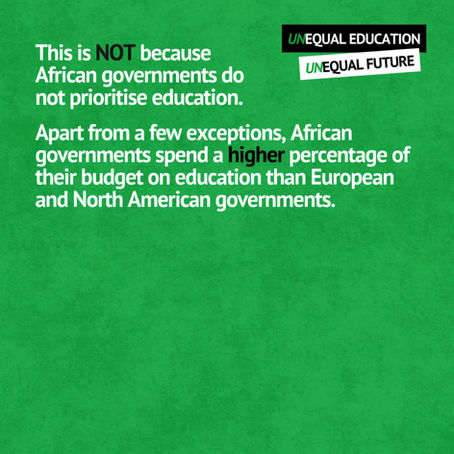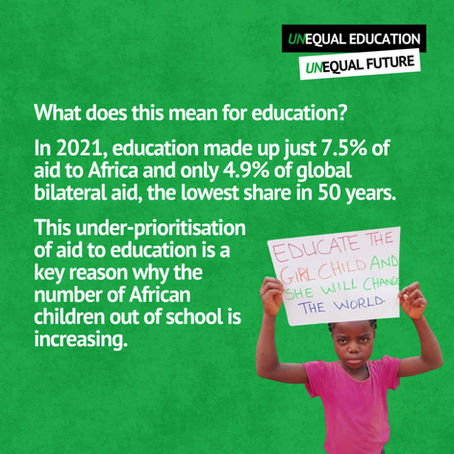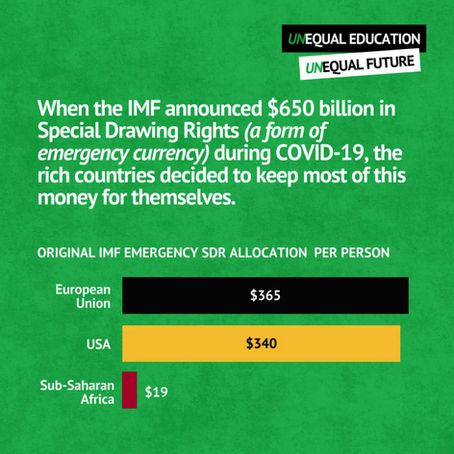ABOUT THE REPORT
Unequal Education, Unequal Future was researched and written by 100 Million and the All-Africa Students Union for the Justice for Africa campaign. Draft versions were heavily consulted on with a broad range of African youth and student activists, and their detailed feedback has been instrumental in creating the final version.
In the 48 years since the Soweto Uprising, which is commemorated every year on the Day of the African Child, the gap in education budgets between countries in Africa and their former colonisers is 110 times higher, even when adjusted for inflation.
In fact, in the ten countries in sub-Saharan Africa that have data available, education spending per child has halved since 1976. How has education inequality become so much worse in our generation?
This new global analysis explains the staggering increase in education inequality, which has actually accelerated since the world promised to leave no-one behind in the Sustainable Development Goals, and the impact on African children and young people today.
The report then explores the systemic global injustices behind this rise. including tax injustice, debt injustice, discrimination and broken promises in aid and climate financing, as well as discriminatory global decision-making structures.
It argues that in a world that has never been richer, reversing these devastating trends and finally delivering Justice for Africa is not unachievable, presenting immediate and long term actions that would reduce education inequality and build more equal future.
The report provides a solid, evidence-based foundation for arguing that the current state of education in Africa is a result of deliberate global decisions, and thus can be changed by making different choices.
The detailed breakdown of immediate and long-term actions provides concrete steps for advocacy efforts, making the report not just an analysis but a guide for action.
- Eliseus Bamporineza, Youth Empowerment Advocate, Kenya
It helps to put a lot in context about what’s happening in our continent, we’re deliberately being disadvantaged and impoverished.
Learning about how capital is used and allocated from different networks towards education in Africa was a game changer for me.
- Kgopotso Radebe, Youth activist, South Africa
This report is very powerful. It is shocking to see the level of discrepancy in terms of state budgets for the education sector, in which we saw one country only has twice the budget compared to 30 African countries
- Rosália Djedjo, National Confederation of Students Associations of Guinea Bissau
The concrete examples and data presented allowed me to better understand these complex concepts, and will definitely be useful in my advocacy, as it offers an in-depth analysis of global economic issues.
- Jérémie Kasongo, Youth activist, Democratic Republic of Congo






.png)
.png)
.png)






